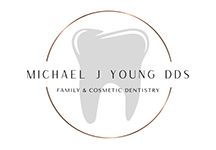 Chronic aches and pains can have a significant impact on the quality of your daily life, especially if you don’t know why they occur. Many people have fruitlessly sought diagnosis and treatment for their chronic discomfort, failing to realize that their frequent earaches, migraines, and other craniofacial troubles may result from a functional issue with their jaws. Today, your Lafayette dentist, Dr. Young, explains the trouble of TMJ disorder, and why the jaw dysfunction can have a wide variety of symptoms.
Chronic aches and pains can have a significant impact on the quality of your daily life, especially if you don’t know why they occur. Many people have fruitlessly sought diagnosis and treatment for their chronic discomfort, failing to realize that their frequent earaches, migraines, and other craniofacial troubles may result from a functional issue with their jaws. Today, your Lafayette dentist, Dr. Young, explains the trouble of TMJ disorder, and why the jaw dysfunction can have a wide variety of symptoms.
What is TMJ Disorder?
TMJ disorder affects the joints that allow your jaw to move, called the temporomandibular joints (or TMJs, for short). When healthy and perfectly aligned, these gliding joints allow the pressure of your bite to distribute evenly, creating a smooth and uninhibited flow of movement. Unfortunately, many factors can cause these joints to fall out of alignment or become damaged, forcing your jaw to work over time. Crooked teeth (malocclusion), a jawbone deformity, or an unconscious habit can throw your bite off balance and possibly lead to TMJ disorder.
Transferring Discomfort Along the Trigeminal Nerve
Aside from its joints and muscles, your jaw also contains a large branch of your trigeminal nerve, whose three branches reach out to innervate much of your craniofacial structure. When damaged joints and muscles strain, they can irritate the nerve, and discomfort can be spread throughout the nerve’s other tissues, creating migraine headaches, earaches, jaw stiffness, facial pain/soreness, or other TMJ-related symptoms. On occasion, gently massaging your TMJs, located in front of each year, can help relieve muscle tension.
Find Relief from TMJ-Related Migraines with Your Lafayette Dentist
If you’re suffering from seemingly unexplainable discomfort, such as migraines, then schedule an appointment with your Lafayette dentist by calling Dr. Young at (337) 237-6453. Located in the 70508 area, we proudly serve patients from Lafayette and all surrounding communities.
